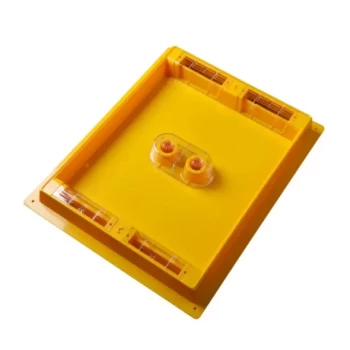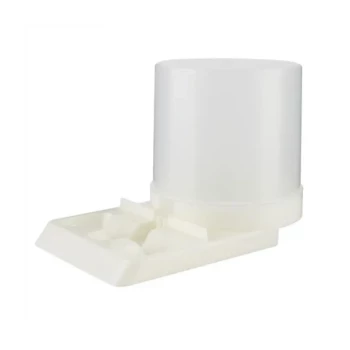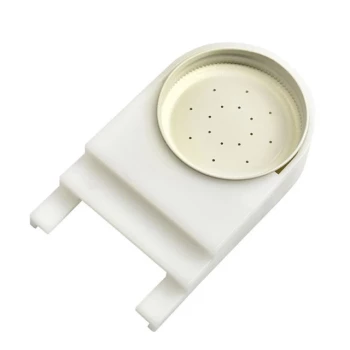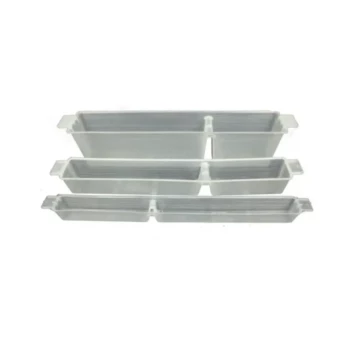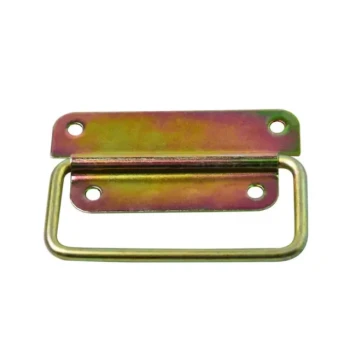After relocating a beehive, monitoring food and water is a critical survival measure because the move completely disorients the colony, temporarily severing their connection to known resources. This disorientation means they cannot immediately find nectar, pollen, and water in the new landscape, making supplemental support essential for preventing starvation, dehydration, and collapse.
Relocation induces significant stress on a bee colony, disrupting their established navigation and foraging routines. Providing an immediate, easily accessible source of food and water is not just a supplement; it's a crucial intervention to mitigate this stress and enable the bees to successfully adapt to their new home.
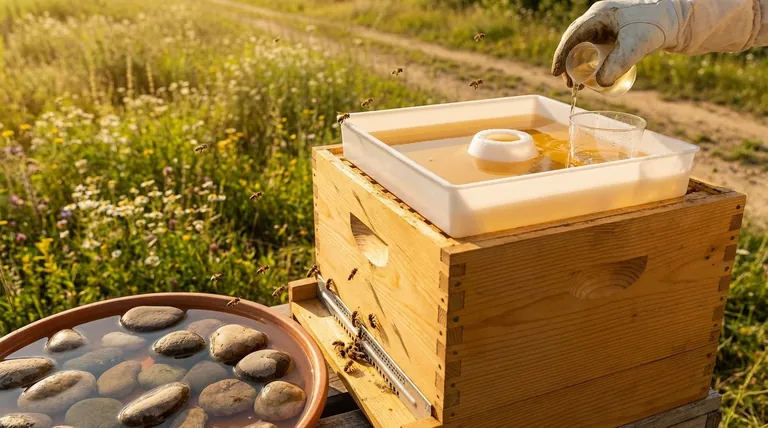
The Core Challenge: Relocation Stress
Relocating a hive is one of the most stressful events a colony can endure. Understanding this stress is key to understanding why food and water are so vital.
The Disorientation Phase
A bee colony builds a complex mental map of its surroundings, pinpointing the exact location of the best food and water sources within a multi-mile radius.
When you move the hive, this entire map becomes useless. The returning forager bees are lost, and the bees inside have no established flight paths to follow.
Broken Foraging Routines
During this initial period of disorientation, which can last several days, the colony's foraging force is severely handicapped.
They must reorient themselves and begin the time-consuming process of discovering new sources of nectar, pollen, and water. This is a period of very low income for the hive.
Why Food and Water are the First Priority
A colony cannot wait for foragers to slowly build a new map. The internal needs of the hive—feeding larvae, controlling temperature, and sustaining the queen—are constant.
Bridging the Nutritional Gap
A supplemental feeder filled with a 1:1 sugar-water solution acts as an internal, guaranteed source of carbohydrates.
This artificial nectar provides the energy the bees need to perform essential in-hive tasks and fuel the scouting flights required to find natural food sources. Without it, the colony can quickly burn through its stored honey and face starvation.
The Critical Role of Water
Water is just as important as food. Bees use it for cooling the hive through evaporative cooling, diluting honey to feed to larvae, and for their own hydration.
Placing a simple water source with landing spots (like rocks or corks) near the hive entrance ensures they don't have to search for it while disoriented and stressed.
Fueling a Return to Normalcy
By removing the immediate pressure to find food and water, you allow the colony to focus its energy on re-establishing its internal order and exploring the new environment. This significantly speeds up their adaptation and reduces overall colony stress.
Common Pitfalls to Avoid
While essential, supplemental feeding and watering must be done correctly to avoid creating new problems.
Risk of Attracting Pests
Open feeders can be a powerful attractant for ants, wasps, and robber bees from other colonies. This can create a new, intense source of stress for your relocated hive.
Using internal hive-top feeders or entrance feeders with robber screens can help mitigate this risk.
The Danger of Over-feeding
Continuous feeding after the colony has started foraging successfully can be counterproductive.
The bees may begin storing the sugar syrup in the brood chamber, creating a "honey-bound" condition that leaves the queen with no room to lay eggs. This can severely limit the colony's growth.
Ignoring Natural Resources
The goal of supplemental feeding is to be a temporary bridge, not a permanent crutch. As soon as you see bees returning to the hive with full pollen baskets, you know they have found natural resources. This is your cue to reduce or stop supplemental feeding.
A Practical Monitoring Framework
Your goal is to support the bees until they can support themselves.
- If your primary focus is immediate survival: Provide a 1:1 sugar-water solution in an internal feeder and a close-by water source immediately upon placing the hive in its new location.
- If your primary focus is encouraging natural foraging: Monitor the feeder daily. Once you see the bees are taking less syrup and are bringing in natural pollen, begin to taper off and remove the supplemental feed.
- If you are concerned about robbing or pests: Use an internal feeder that is inaccessible from the outside and ensure the hive entrance is reduced to a smaller, more defensible opening.
Proactive monitoring and support of these basic needs is the foundation for turning a stressful relocation into a successful one.
Summary Table:
| Key Reason | Impact on Colony | Action Required |
|---|---|---|
| Disorientation & Broken Routines | Bees lose their mental map of resources, leading to a foraging gap. | Provide immediate supplemental food and water. |
| Risk of Starvation & Dehydration | Internal hive needs (feeding larvae, cooling) continue unabated. | Offer a 1:1 sugar-water solution and a nearby water source. |
| Fueling Adaptation | Supplemental resources reduce stress, allowing energy for reorientation. | Monitor feeder intake and natural pollen collection to taper support. |
Ensure your beekeeping operations run smoothly with reliable supplies from HONESTBEE.
Relocating colonies is a high-stakes operation. Having the right equipment—from internal hive-top feeders to durable hives—is essential for managing stress and ensuring survival. At HONESTBEE, we supply commercial apiaries and beekeeping equipment distributors with the high-quality, wholesale-focused supplies needed to support bee health during transitions and beyond.
Let us help you build a more resilient operation. Contact our team today to discuss your wholesale supply needs.
Visual Guide
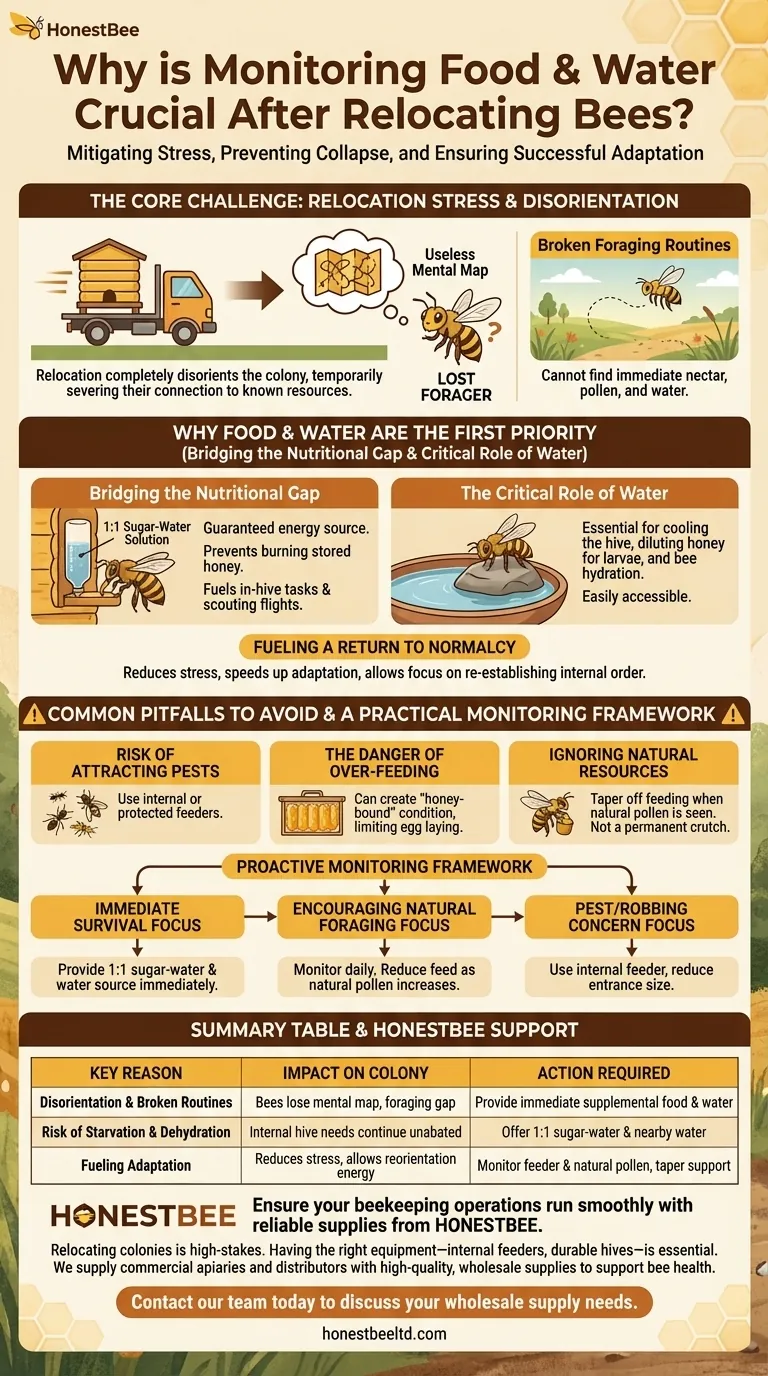
Related Products
- HONESTBEE Professional Hive Top Bee Feeder Feeding Solution
- Professional Hive Top Bee Feeder for Beekeeping
- Professional Hive Front Entrance Bee Feeder
- HONESTBEE Entrance Bee Feeder Efficient Hive Front Liquid Feeding Solution for Beekeeping
- HONESTBEE Entrance Bee Feeder Professional Hive Nutrition Solution for Beekeeping
People Also Ask
- Why is a UV-Vis spectrophotometer required for assessing honey's antioxidant capacity? Ensure Quality & Science.
- Why are battery-powered portable electronic scales essential for beehive monitoring? Ensure Precision in Remote Fields
- What role do transport and monitoring equipment play in migratory beekeeping? Optimize Your Apiary's Mobility & Yield
- How do high-precision industrial platform scales assist in monitoring honey production? Non-Invasive Data Insight
- What are the specific functions of gelatin when preparing honey pollen microscopic slides? Expert Preparation Guide
- What are the primary functions of dedicated bee houses and fencing facilities in urban beekeeping? Secure Your Apiary
- Why is professional beehive transport and mobile equipment essential for migratory beekeeping? Scale Your Honey Yields
- Why are high-precision industrial Platform Scales essential for honey bee breeding? Drive Genetic Progress via Data

